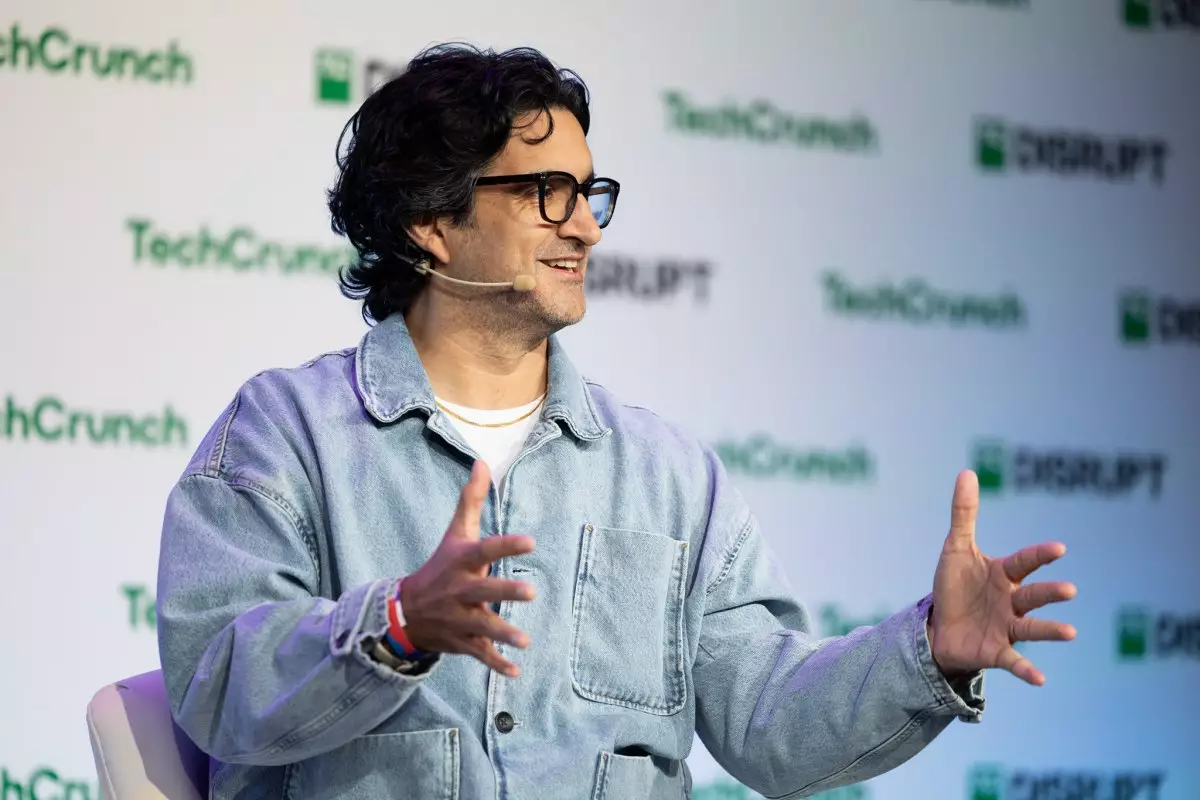In the fast-paced world of entrepreneurship, where brilliant ideas often collide with personal battles, few stories resonate as deeply as that of Andy Dunn, the founder of Bonobos. Recently, Dunn has returned to the entrepreneurial arena with a new venture—a social media platform named Pie. However, his departure from Bonobos, a company he built and sold for an impressive $310 million, has equipped him with profound insights not merely on business but on the critical interactions between mental health and entrepreneurship.
Dunn’s journey took a challenging turn during his college years when he received a diagnosis of bipolar disorder. This psychological ailment, characterized by extreme mood swings, led Dunn into the treacherous waters of manic episodes, often overshadowed by periods of intense depression. Unfortunately, it wasn’t until his hospitalization in 2016 that he truly grasped the significance of managing his condition. Reflecting back, he described the manic state as akin to being in “psychosis,” filled with grandiose yet unproductive thoughts. This stark reality highlights a critical aspect of mental health issues in high-stress professions: the perilous risk of neglecting one’s mental state while relentlessly pursuing business goals.
His experience in the startup ecosystem revealed that the frenetic energy of hypomania could initially seem beneficial for creativity and output. However, Dunn candidly acknowledged the inherent drawbacks, including irritability and a struggle with interpersonal relations, which can prove detrimental in a collaborative environment. The duality of his mental state—an exciting yet hazardous condition—forces entrepreneurs to confront the potential impact of such neurodivergencies on their professional livelihood.
Dunn encapsulated the highs and lows of his journey in his book titled “Burn Rate: Launching a Startup and Losing My Mind.” Within its pages, he intricately weaves his narrative of building Bonobos alongside the efforts to accept and manage his mental health challenges. According to Dunn, it is not just those with diagnosed conditions who encounter struggles; every entrepreneur grapples with mental health, underscoring its universality in high-stakes industries. In his case, the relationship between neurodivergence and creativity raises pertinent questions: Does entrepreneurship inherently attract individuals with unique cognitive profiles, or does the entrepreneurial experience naturally foster such traits?
Dunn emphasizes that hypomania, with symptoms like rapid ideation and diminished sleep requirements, can appear synonymous with the typical behaviors of a successful entrepreneur. Yet, he juxtaposes this notion against a harsh reality—the recurring depressive episodes that accompany such highs. Dunn’s frank admission of struggling with persistent suicidal thoughts encapsulates the often-overlooked narrative that mental health struggles can frame the overall trajectory of a professional journey.
Transitioning from Bonobos to his new venture Pie, Dunn has undertaken a conscious effort to foster an inclusive and collaborative culture that thrives on debate and dissent. Recognizing the shortcomings of his prior management styles exacerbated by hypomania, he actively encourages an atmosphere where differing opinions lead to richer decision-making. This shift demonstrates maturity in his leadership philosophy—acknowledging that a healthy dialogue can foster innovation while protecting the mental wellness of his team.
Dunn’s advocacy for mental health within the entrepreneurial community extends to his role with the Founder Mental Health Pledge. As he advises fellow founders on navigating the delicate balance between disclosure and professional relationships, he candidly recognizes the lingering stigma surrounding mental health issues. His suggestion to delay revealing one’s mental health status until after securing investment highlights an unfortunate reality; many fear that their mental health could be perceived as a liability in a competitive landscape.
Despite the underlying concerns, Dunn has experienced tangible success with his new venture, raising $11.5 million in Series A funding for Pie. His commitment to advocating for mental health management within an entrepreneurial framework has not inhibited his ability to attract investors. On the contrary, he champions a proactive approach to addressing mental health—comparing his regimen to that of elite athletes training for the Olympics. For Dunn, maintaining mental health while pursuing ambitious goals becomes a central tenant of his entrepreneurial philosophy.
In this pursuit, he recognizes that the traditional 40-hour workweek may not suffice to achieve notable outcomes. Dunn has iterated a candid approach to recruiting, making it clear that new members should anticipate a rigorous workload, coupled with opportunities for personal growth and equity in the company. This transparency exemplifies how founders can work hard without compromising their own mental well-being or that of their team.
Ultimately, Dunn’s narrative is a powerful reminder that success in entrepreneurship does not have to come at the expense of mental health. The challenges of running a startup can be daunting, yet prioritizing self-care and fostering supportive environments can lead to both personal and professional fulfillment. As Dunn himself reflected, recognizing the integral nature of mental health in the entrepreneurial journey transforms the often-simplistic notion of “working hard.” It becomes about working smartly, taking care of oneself, and creating thriving teams capable of enduring the trials of the startup landscape. In this complex interplay of innovation and personal health, Dunn’s story stands out as a testament to the potential for renewal, growth, and resilience in the face of adversity.


Leave a Reply